Posted April 27, 2012
There have been accusations that the Western Australian Government's overhaul of the Aboriginal Heritage Act panders to the mining sector by making it easier for companies to disrupt sacred sites.
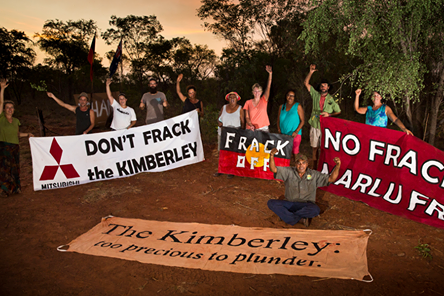
Buru Energy
The shares appear to have been marked down as traders have bailed out of many stocks regardless of fundamentals, desperate to lock in any profit for fear of it evaporating.
Up 200%, but down 50% in the last year
Buru shares have trebled since early 2011, but are down a whopping 50% over the past 12 months, making the company the second worst oil and gas sector company in the S&P / ASX 200 Index (Index:^AXJO) (ASX:XJO) over the past year.


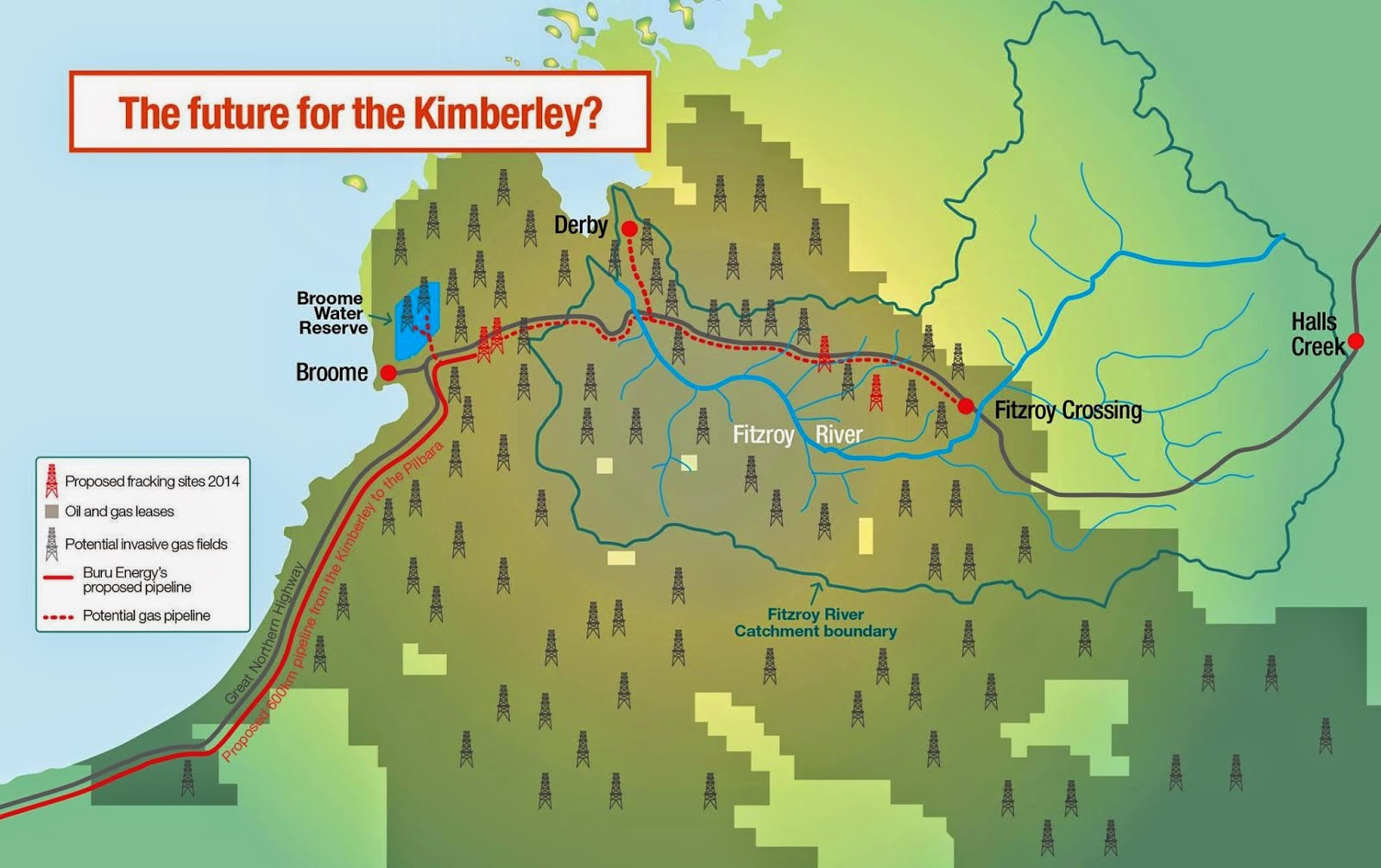
Premier Colin Barnett was quick to talk up the Canning Basin’s shale gas potential when Woodside walked away from an onshore gas plant at James Price Point, saying it was inevitable those resources would be exploited.
While he has pointed to the US shale boom, industry experts say the Canning Basin has a different geology and is unlikely to replicate the same level of success.
Western Australia is on the brink of an explosion in gas fracking activity. Fracking has already begun in some of our most beautiful, fertile, and special places – the Kimberley, our famed Wildflower region, and the Carnarvon food bowl.
If industry and the Department of Mines and Petroleum get their way, then WA will have a US-style ‘fracking frenzy’, with tens of thousands of wells over our farms and the landscapes we love.
The Government must ensure that we’re protected from this industry that threatens our air, water and land.
Scientists, farmers and communities across Australia have expressed concern about the impact of fracking on both our health and the environment – but the Government has ignored community concern and pushed fracking proposals through without proper environmental assessment.
We want the WA Government to follow New South Wales, and countries like France and Germany, and adopt a moratorium on fracking to protect our land and water.
http://cleanwaterhealthyland.org.au/node/148882

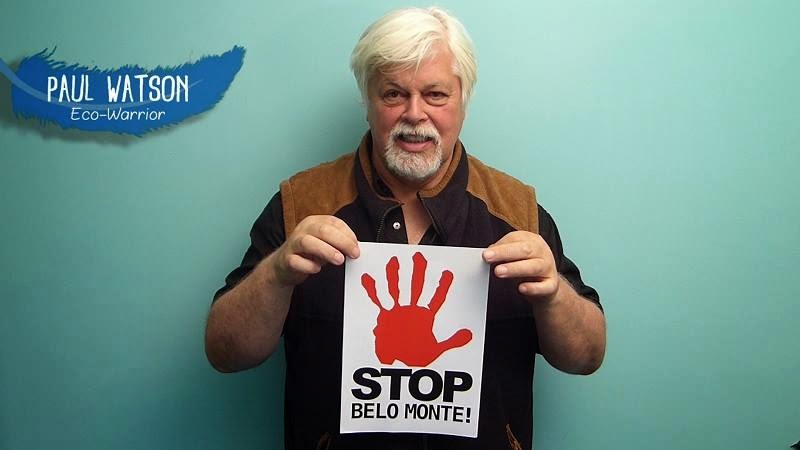
It is incumbent upon us as members of society to have honest and open conversation about what we do know and what we don't know, what the risks are or may be, and what our strategy for confronting those risks or mitigating those risks will be.
Unfortunately, the conversation is a little too shrill, and a little too cast in the context of extremes, and I think this continues to inhibit meaningful progress and meaningful discussion about what we need to do about what lies ahead.
I may be repeating myself here, but the basic physics of greenhouse warming are very straightforward. The data we have make it very clear that the earth is warming. The data and the physics make it very clear that the bulk of the warming is being caused by human activity.
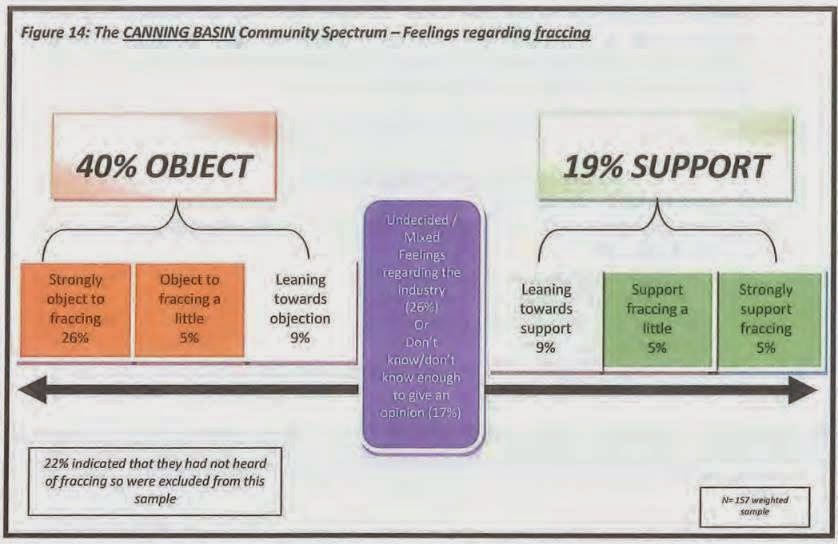
As former ICAC Commissioner David Ipp told Linton Besser:
"One begins to fear that corruption might be far more widespread than was at first thought."
The now retired Commissioner is not the only one concerned. Besser interviews former top NSW bureaucrat Kerry Schott, who resisted corrupting influences only to find herself the subject of spurious corruption allegations.
We also hear from former Premier Kristina Keneally, respected Labor Senator John Faulkner, and Liberal Senator Bill Heffernan, who helped blow the whistle on corruption eating into his own party.
Warning about the dangers in the current system, he says:
"The most important qualification in public life, is not to have a price... every now and then you've got to have a cleanout, and at the present time there's a bit of a cleanout going on."
Significantly, there is no Federal commission to fight corruption. The key questions now are how far will the clean up go and is there the political will to reform the regulations that govern political donations?
DEMOCRACY FOR SALE, reported by Linton Besser and presented by Kerry O'Brien, goes to air on Monday 23rd June at 8.30pm on ABC1. It is replayed on Tuesday 24th June at 11.00am and 11.35pm. It can also be seen on ABC News 24 on Saturday at 8.00pm, ABC iview and at abc.net.au/4corners.
State governments have spent nearly $18 billion supporting mining and energy companies over the past six years, The Australia Institute says.
The research body has published a new paper called Mining the Age of Entitlement: State Government Assistance to the Minerals and Fossil Fuel Sector.
This is the first time anyone has attempted to put a dollar figure on the value of state government assistance to fossil fuel and mining companies across the country.
Foreign Minister Julie Bishop warned last week that Australia would lead international talks in November on reducing ''inefficient'' subsidies to the global oil industry, saying fossil fuel subsidies were distorting energy markets and encouraging ''wasteful consumption''.
The institute's paper, to be published on Tuesday, shows that since 2008-09, the Queensland government has provided more than $9.5 billion in direct support to mining and energy companies, while the Western Australia government has provided more than $6.2 billion.
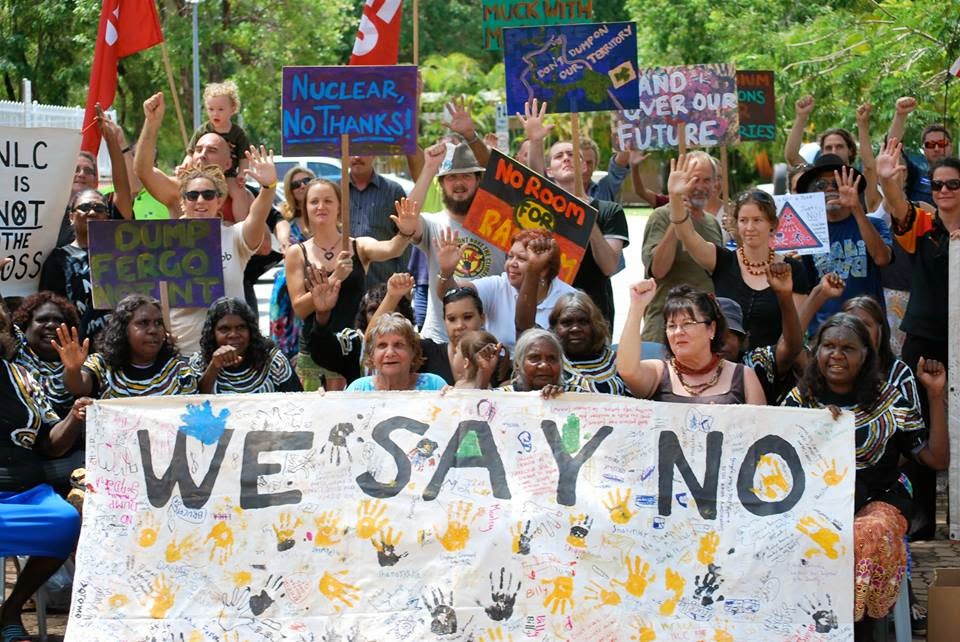
The Abbott Government last night passed a bill through the Lower House to hand federal environmental approval powers to the states, ignoring the World Heritage Committee’s concern about this environmentally disastrous plan.
“UNESCO is currently meeting to decide whether to downgrade the Great Barrier Reef’s World Heritage status to ‘In Danger’ and has expressed concern about the Abbott Government’s hasty handover of federal approval powers to the states,” Senator Larissa Waters, Australian Greens environment spokesperson, said.
“But Tony Abbott is ignoring this international expert concern and forging ahead with his plan to give state premiers the final say over destructive projects threatening our World Heritage Areas and threatened species.
“Leaving the fate of the Great Barrier Reef in the hands of Campbell ‘we’re in the coal business’ Newman would put this already struggling World Heritage Area in grave danger.
“Federal environmental approval powers have been in place for more than 30 years and saved the Reef from being scarred with oil rigs in the Bjelke-Petersen era.
“With Tony Abbott’s bill to put the states or even local governments in charge, environmental standards would drop and the fox would be in charge of the hen house Senator Waters said.

The richest 1% of Australians now own the same wealth as the bottom 60%, according to a new report designed to bolster the case for global and domestic action to shrink the gap between rich and poor.
The Oxfam Australia report also indicated that the nation’s nine richest individuals had a net worth of US$54.8bn, which was more than the combined bottom 20% of the population, or 4.54m people.
The report, released on Monday, follows previous warnings by Oxfam International that the 85 richest people in the world now own the same as half of the world’s population, or 3.5bn people.
“Income inequality in Australia has been on the rise since the mid-1990s, despite all sections of Australian society experiencing some increase in income during the same period,” the report said.
“In 1995, Australia had an average level of inequality compared to other wealthy OECD member countries. Today, we are below average, having become less equal than our peers despite having a better-performing economy than most.”

The Australian and Western Australian governments have agreed to a strategic assessment to find a suitable site for a liquefied natural gas precinct to service the Browse Basin gas reserves off the Kimberley coast, and to ensure that this site is appropriately managed.

JUST ON ABC KIMBERLEY NEWS AT 1120
3 INDEPENDENT DELEGATES have been appointed by the WA EPA to do a Environmental Impact Assessment of James Price Point for use as a Common User Hub.
The chairman of the assessors is Jarrad Ealy.
This is a strategic assessment and they have been given no deadline to complete the assessment.

PS. To keep up to date on the Bentley situation over the next few critical days, please like and follow the Lock the Gate Facebook page.
PSS. To contribute to the campaign to support communities at risk of unsafe drilling around Australia, please consider becoming a Gate Keeper today.
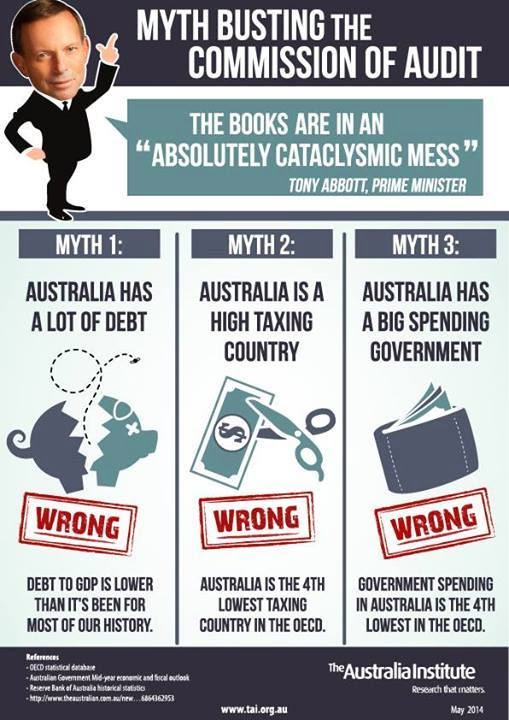
HAHAHA funniest thing I've ever read.
In todays Broome Advertiser the dunce Procter whinging about companies leaving town because of the "blow-in hippie rabble of well heeled greenies from Sydney's north shore" have scared them all off by stopping the JPP LNG disaster from happening.
Hahaha according to Coleman Woodside spent "almost $2 billion to get James Price Point to work. I don't know how people can expect companies to spend any more money than that trying to make a development commercially viable.
"James Price Point simply didn't work. Period. So talking about local content in the context of a project that won't get built is kind of a hollow discussion."
SO what's Proctor banging on about?
Well him and his spouse Bloom set up an "oil and gas consultancy" that promoted the LNG plant and trumpeted it to the high heavens and back.
Of course there wasn't a well informed analyst anywhere on the planet that believed the plant at JPP would proceed.
The Shire followed Proctors advice to the tune of $8 million and have zero to show for it.
SO Proctor is pissed that the "blow-in hippie rabble of well heeled greenies from Sydney's north shore" know more about building LNG plants than him or his partner Bloom.
How embarrassing!
And worse - the rabble of greenies gave the Shire all the "good oil" on exactly what would happen to the doomed plant FOR FREE !
If that wasn't embarrassing enough the Proctor/Bloom grand plan for Chinatown has come unstuck as their mate designed it all in Japanese by mistake.
This was rumoured to cost $4million.(I'm guessing this one as there seems to be a news blackout on the details and according to the Advertiser some time back that was the plan).
It was said at the time "why pay some dickhead from bloody Austria or somewhere $4 million to design Chinatown when the Chinese community would have gladly given suggestions for free?"
HOW MUCH LONGER MUST WE PUT UP WITH "DUMB AND DUMBER"?
Redhand:
Thanks for this great comment and would just like to remind Proctor/Bloom that if Woodside had gone ahead they would have sunk their corporation and Broome would have gone down with them.
Woodside chief Peter Coleman said "We invested about 4.5 million man hours and had hundreds of Woodsiders who dedicated years trying to come up with a way to make this land-based development commercially viable," Woodside vice-president Roger Martin wrote in an opinion piece in The West Australiannewspaper. "When the final number came in at more than $80 billion, it was obvious these efforts were in vain. " Martin said that modelling showed Woodside’s share of developing the project was estimated at $25 billion, almost as much as the whole market value of the company. "Effectively, we would have spent almost the entire value of our company on an uneconomic project," he wrote.
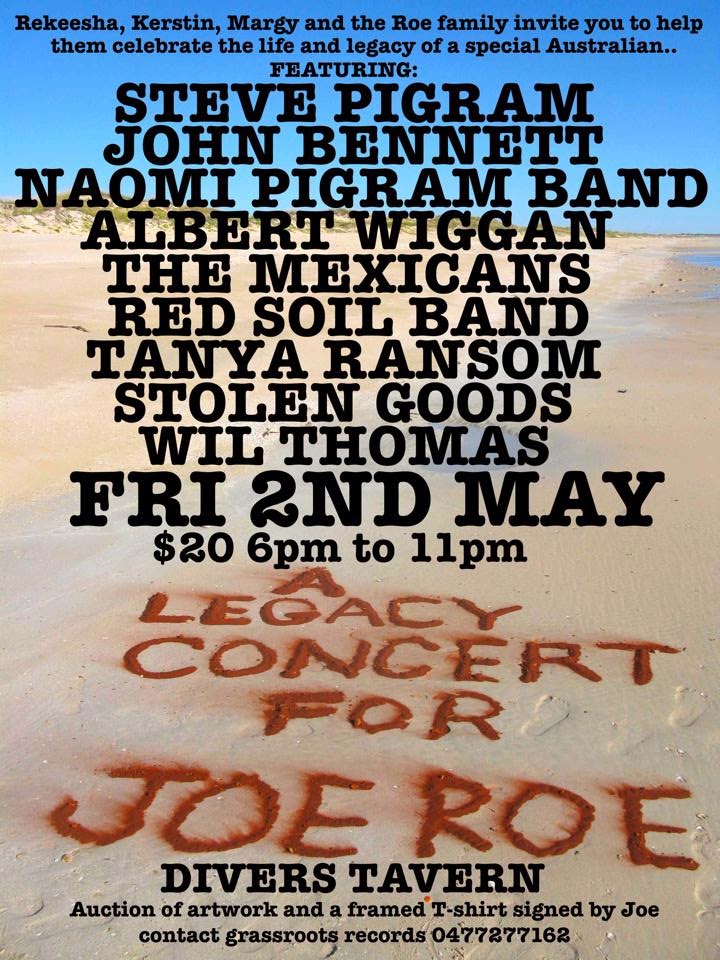

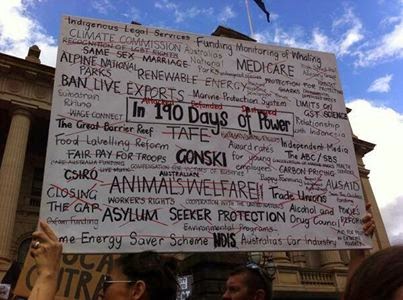
The emergence of March in March is both a hopeful story for progressive Australia and a phenomenon that the right ridicules at its peril. Abbott had reached a hundred days in office, and discontent at the rapid pace of policy change from a coalition that had promised “no surprises, no excuses” was fermenting.
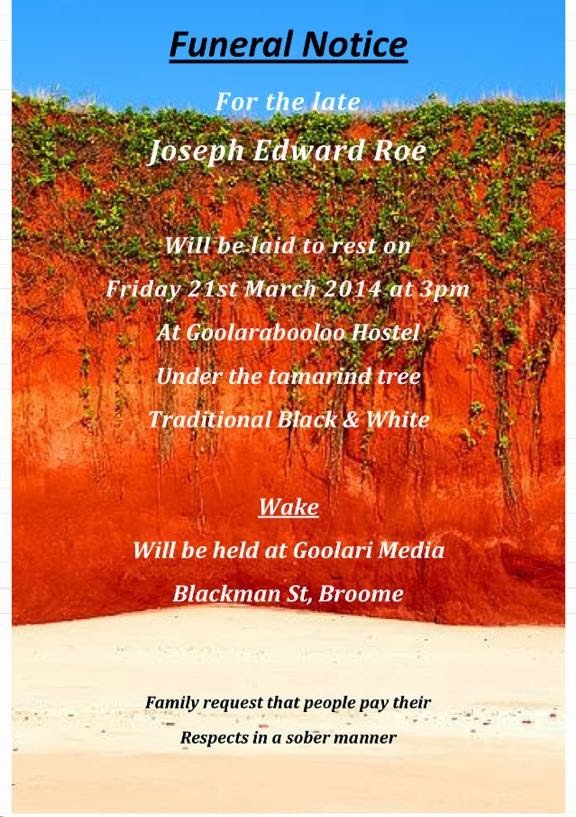

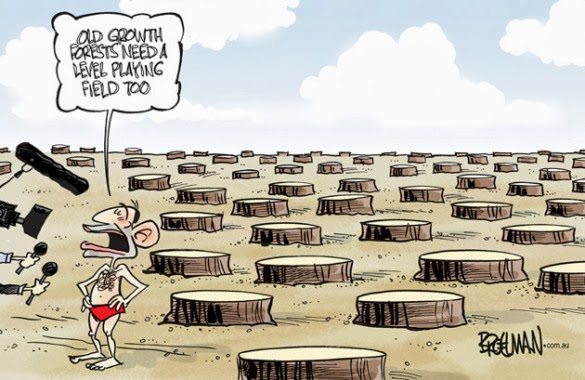
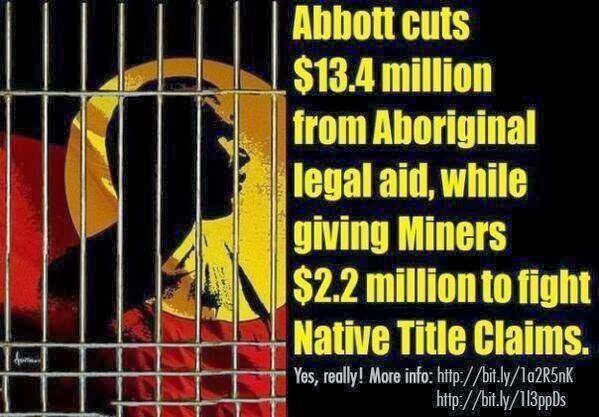
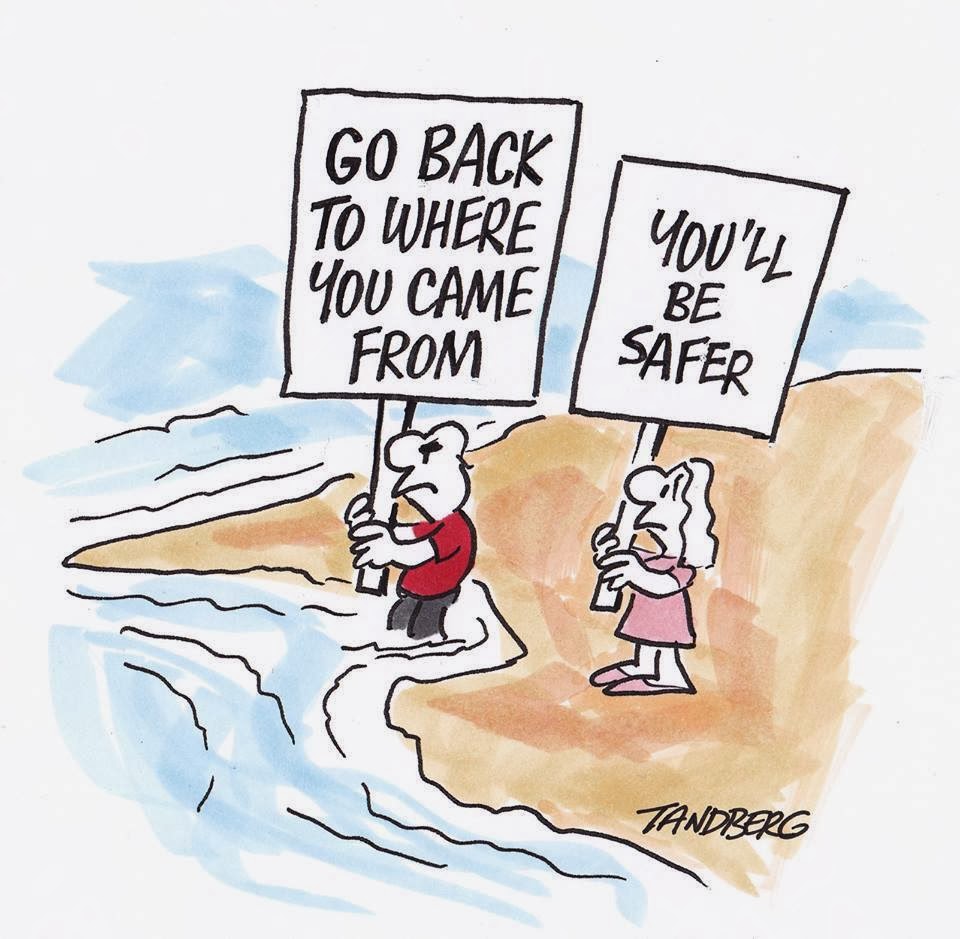
Australia’s treatment of asylum seekers sent to offshore processing centers is cruel, inhuman and degrading and it violates international law, the United Nations’ human rights office said Friday.
It called for an investigation and punishment of those responsible for an outbreak of violence at a center in Papua New Guinea that houses asylum seekers sent there after trying to get to Australia.
Clashes between inmates and guards at the Manus Island processing center in Papua New Guinea this week left one person dead and 77 injured. Ravina Shamdasani, a spokeswoman for the United Nations human rights office in Geneva, noted reports that private security guards employed at the Manus Island center were involved in the violence and added that “states maintain their human rights obligations when they privatize delivery of services such as security, and must take steps to investigate, redress and punish human rights abuses by third parties.” Prime Minister Tony Abbott elected in 2013 partly on the promise of a tough policy toward migrants and asylum seekers, said the government would not succumb to “moral blackmail” and would ensure that the camps were run “fairly, if necessary, firmly.”


To anyone who drinks water, the rusted, leaky underground tanks storing underground fuel are the “single largest threat” to its safety. To major oil companies, they’re an opportunity to profit.
Reuters has an exclusive report on the despicable fraud being carried out by Big Oil. Call it “double-dipping”: When toxic, potentially carcinogenic leaks of gas and diesel threaten aquifers, the companies accept government funds to clean it up. Then, they apply for a second payout from the insurance companies. And all the big guys, it seems, are going for it: Chevron, Exxon, ConocoPhillips and Sunoco have agreed to settlements over the past three years totaling over $105 million.
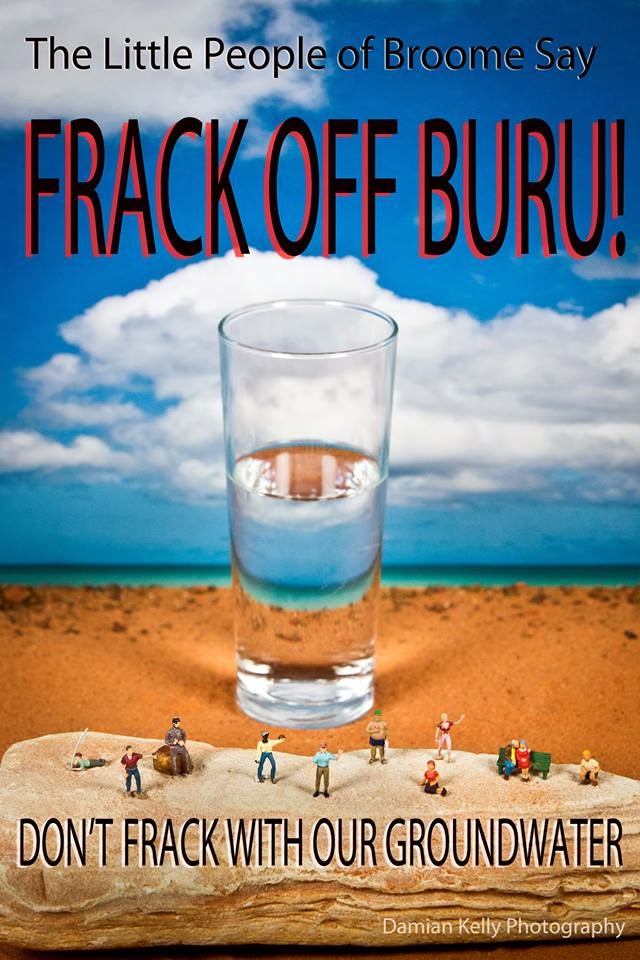

"What we know from other parts of the world is industry best practice means contaminated ground water, serious air pollution, health impacts on communities and serious environmental disturbance, so we don't think industry best practice is going to be acceptable here for Western Australia," he said.
Mr Verstegen said the council estimated there could be 100,000 wells drilled in the Kimberley in the north of the state when commercial shale gas production gets underway based on well density in the US.
But he said the figure may be out by "50 per cent".
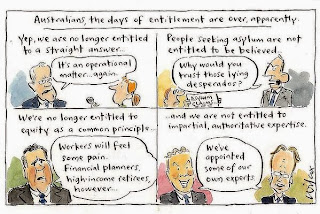
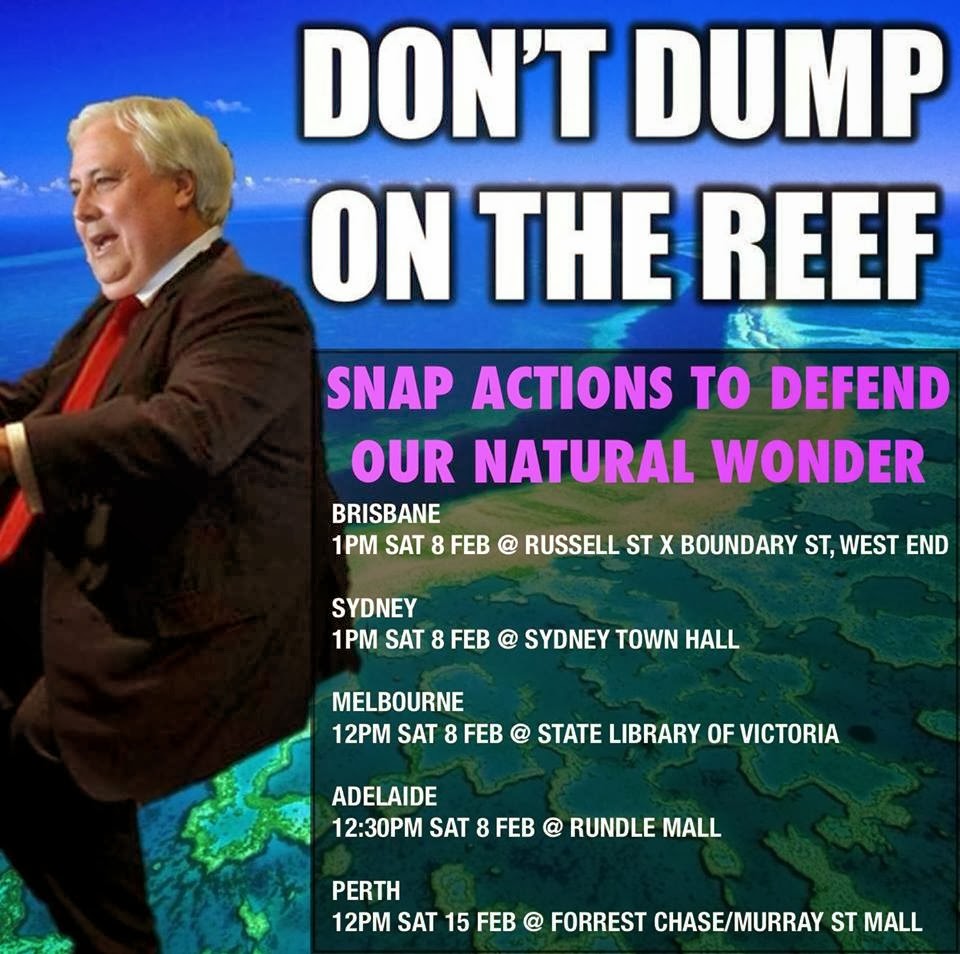


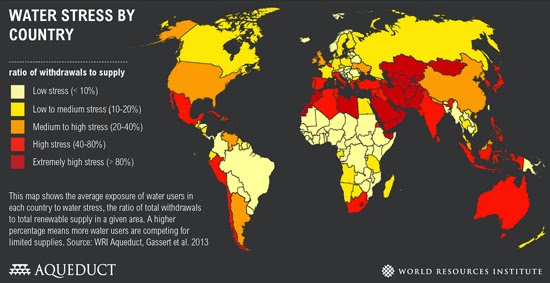





What they said
With a victory confirmed for Abbott, congratulations and gentle reminders to get on with the job have been pouring in thick and fast.
“A focus on reducing the cost of doing business and increasing exploration activity need to be a priority for the Coalition government in order to enable the continued growth of the resources sector in Western Australia,” Chamber of Minerals and Energy of WA chief executive Reg Howard-Smith said.
His Queensland counterpart expressed similar sentiments, adding that Abbott should not buy into an environmental scare campaign being waged over the Great Barrier Reef.
“Now the campaign is over, the work begins to put policy rubber on the road and the Abbott government can be assured of the support and encouragement of the QRC and its members,” Queensland Resources Council CEO Michael Roche said.
The Australian Mines and Metals Association insisted that Abbott had a clear mandate to implement sweeping change, urging him to use his power for the betterment of the resources sector.
“The Abbott government has a clear mandate to restore confidence back into Australia’s resource industry and back into our country as a globally competitive and productive place to do business,” AMMA CEO Steve Knott said.
“We encourage the Coalition to hit the ground running and begin implementing a policy framework that will both attract investment into new resources exploration and also ensure Australia reaps the benefits of a strong production and export phase.”
The consequences of the James Price Point decision on other projects
This case puts a spot light on past, present and future assessment practices and raises questions about the certainty of decision-making in Western Australia.
For the Browse LNG Precinct (if this is to be further pursued by the State, given the Premier's recent statement apologising for the Precinct's failure), it's back to square one. The EPA will have to completely reassess the proposal (without the involvement of the conflicted members and arguably without the involvement of the Chairman).
For the EPA, it's back to basics. This decision may trigger a wholesale review of EPA practices (not just those in respect to conflict of interest).
As a result, proponents who have proposals in the pipeline may find the process delayed as the EPA sorts itself out. Even those proponents with a fresh approval in their hands might find that they are subject to challenge. Either way, they will need to be prepared for what might turn out to be lengthy and expensive delays in their approval process, and be more vigilant to ensure similar mistakes don't vitiate any future approvals.
Clive Hamilton, an Australian public intellectual and author of several books on climate change, wrote:
“To environment groups it’s been apparent for some years that the traditional methods of campaigning have been woefully inadequate in securing a political response anywhere nearly proportionate to the threat posed by global warming. For those open to the implications of the scientific warnings, a sense of despair can take over when they see once again the failure of governments to protect the future wellbeing of their citizens and the extraordinary power fossil fuel corporations exercise over government decisions.”

What are the different types of compulsory acquisition?
The Native Title Act makes different rules for two different types of compulsory acquisition these have a quite different impact on native title:
Under Government acquisitions for other people, like mining companies or developers the law provides that the parties have certain rights including the right to negotiate.
The right to negotiate is when the Native Title Act requires that the parties (which will include the State and the developer) have to negotiate in good faith with the native title holders with a view to reaching an agreement.
Under these processes the parties; the State and the Miner or Developer and the native title party (which is the Applicant in a registered native title claim) have a certain amount of time to reach an agreement on deciding how the if the act can be done, and what conditions can be imposed.
If the parties cannot reach agreement in six months then the question of if the act can proceed, which in this case is the compulsory acquisition of the land, can then be made by the National Native Title Tribunal.
Compulsory acquisition for the Government purposes – this is generally when the Government takes land to use for Government purposes, which are often called public works. In this case the native title holders are provided with less rights and the right to negotiate will not apply to the compulsory acquisition.
Commenting on the State Agreement, Buru’s Executive Director, Mr Eric Streitberg, said:
“We welcome and endorse the Premier’s comments that “this legislation will bring about the continued exploration for natural gas in the Canning Basin, the development of a gas pipeline to the Pilbara, and ensure Western Australian consumers have first use of any gas discovered”.
Buru is undertaking a systematic and comprehensive exploration and appraisal program in the Canning Basin and has identified both a large gas resource which is the focus of the State Agreement, and a significant oilfield at Ungani which is currently under development. We look forward to continuing to develop these resources to bring value to all the stakeholders involved in the project.”

The Wilderness Society and Goolarabooloo Traditional Custodian Richard Hunter are continuing their legal challenge against the WA Environment Minister and the Environment Protection Authority (EPA) over the way the gas hub was approved.
Their initial reaction was to ‘adjourn’ (put on hold) the Supreme Court case since Woodside’s decision meant there was no chance of a development there for the foreseeable future.
However, the WA state government has insisted the case be heard NOW, in order to secure approvals and access for the JPP site so they can still use it for a potential supply base for offshore gas operations and refinery for onshore shale gas from the canning Basin.
The landmark case will therefore be heard by the Chief Justice of the WA Supreme Court from June 4-6. A month of deliberation before a decision is made is likely.

Between 60-80% of coal, oil and gas reserves of publicly listed companies are ‘unburnable’ if the world is to have a chance of not exceeding global warming of 2°C
Broome, Western Australia 6725 |
| come along to the Divers Tavern from 6.30pm on Thursday May 9th, to say thanks to yourself and everyone else involved in getting the Campaign to where it is today. ntry $20 if you have a job, $10 if you don't, all proceeds to help pay outstanding legal fees associated with the Campaign. More details to be posted when they are finalised. |




Taken from Finding Beauty in a Broken World by Terry Tempest Williams (2008)
“I’ve been thinking about words, individual words and the language we use when talking about nature, how lnaguage shapes perceptions. A word enters my mind: “hypography” - \hi-pah-grah-fee\ n: 1) any public lands given over to corporate interests at the public’s expense; 2) landscape once pristine, now abused by grazing, clear cuts, strip mines, toxic waste dumps, or oil and gas development; a state of extreme corruption fueled by bureaucrats.”
Flawed Gas Hub Development Steamroller Continues to Flatten Local
Recently re-elected Greens WA Member for the Mining and Pastoral Region Robin Chapple MLC has expressed dismay at last night’s turn of events in the James Price Point saga.
“I am deeply saddened that yet again, the people of Broome have been pushed to breaking point by the heavy-handed tactics of the Barnett-Grylls government, as shown by the public disturbance reported at yesterday’s meeting of the Kimberley Joint Development Assessment Panel,” Mr Chapple said.
“It’s no wonder some people react bitterly, when they see their democratically elected Council sidelined by these unrepresentative bodies.“The Government should take heed of yesterday’s fracas, because it is surely but a precursor to what will happen around the state, as more and more vital decisions affecting people’s day-to-day lives are taken out of their hands and given to so-called “experts”, with locally elected citizens in the minority.
“In this instance, we have the laughable proposition that it is somehow OK to drop a Fly-in Fly-out (FIFO) camp for nearly 1,000 workers into the middle of an “Agricultural” zoned area adjoining small rural properties where people are pursuing organic horticultural activities.
“Unfortunately, we shouldn’t be surprised, as the whole James Price Point venture has clearly been flawed from the outset and only continues today thanks to the blinkered, fanatical determination of the Premier,” Mr Chapple concluded.
http://newmatilda.com//2013/04/03/welfare-or-gas-money
Professor Flannery said in a statement that it was critical for emergency and health services, as well as the public, to have the best information from scientists.
''Ignoring it or shooting the messenger will not reduce the threat of climate change, it will just mean that Australia is less prepared,'' he said. ''We'd be living in the past to think that Australia did not need to prepare for a changing climate.''
Professor Flannery, a palaeontologist and author who was Australian of the Year in 2007, has been seen as a polarising figure by some because of his calls to phase out large-scale use of fossil fuels.
 Photo Damian Kelly
Photo Damian Kelly
Palaeontologist, Dr Steve Salisbury from the University of Queensland, Goolarabooloo Lawman, Richard Hunter and Scientist and former Australian of the year Tim Flannery on the Goolorabooloo coast early morning over Easter examining dinosaur footprints in collaboration with Broome Dinosaur Trackers.
A Climate Commission report released on Wednesday examined links between Australia's extreme weather and human-induced climate change. It found natural events were being influenced by climate change, because greenhouse gases are accumulating and trapping extra energy in the Earth's atmosphere and oceans.
Commenting on the $1.3 billion benefits package that traditional owners were bound to receive for giving consent to Woodside and the State government’s LNG Precinct development project, Professor Pat Dodson, Broome Yawuru elder, told ABC Radio National's 360:
"Just a lot of rearrangement of public sector funding. Most of it is just a rearrangement of what governments would be required to outlay if they’re going to address the inequities that are already in existence. I have a difficulty as a citizen having to go and beg for a government to provide me with the services that I require to have an equality of life in my own Country."
Commenting on the $1.3 billion benefits package that traditional owners were bound to receive for giving consent to Woodside and the State government’s LNG Precinct development project, Professor Pat Dodson, Broome Yawuru elder, told ABC Radio National's 360:
"Just a lot of rearrangement of public sector funding. Most of it is just a rearrangement of what governments would be required to outlay if they’re going to address the inequities that are already in existence. I have a difficulty as a citizen having to go and beg for a government to provide me with the services that I require to have an equality of life in my own Country."
Stopping James Price Point proposed LNG greenfield would be a major step towards stopping large scale destruction of the environment and distortion of the Kimberley economy and the erosion of our democracy.
We are all concerned about the social and economic issues faced by indigenous communities. We all accept the need to tackle the continuing profound and shameful legacy of hundreds of years of dispossession, denial and despair but we do not accept that the best way to close the gap is by digging a deeper hole, poising the water and polluting the air.
Australia can and must forge a future that embraces indigenous cultural and ecological knowledge and heritage and takes a different approach to managing our precious country for all generations to come - and we believe this is a journey that must be taken together.


The families who signed off on the 1.5 billion dollar deal to give up land at James Price Point for an LNG precinct remain divided over whether it should proceed. They’ve applied to the Federal Court to abandon their joint native title claim so those for and against the project can lodge rival claims over the land. The state government and Woodside have lodged objections to this in a bid to hold the land deal together. In its submission the government has asked to have the court hearing adjourned past the 18th of April, which is the deadline for new native title claims to be lodged. If successful the move would block opponents like Joseph Roe from gaining negotiation rights.
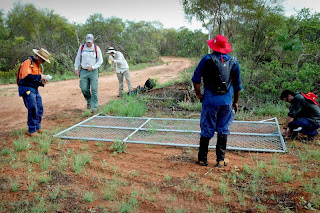
TODAY, Two Police officers in unmarked vehicle visited Walmadany Tent Embassy. Past experience tells us, plans are being made by police to do the bidding of the state by providing protection for corporate interests and alienating the community. EXPECT INVASION SOON. Time to plan, pack your bags and get back into Country to protect the dunes and established support camps. Broome people if you see large equipment, dongas, drill rigs, medical centre donga, barge movements etc, either in Broome or on the Highway, pls txt 0487 604 679 or 0415 998 007. Also, establish your own gas information network on your own phone and social media networks to ensure maximum flow of information and support.





Beautiful images for the Concert for the Kimberley 24/02/13
Updated on Monday · Taken at Esplanade Park
Featuring John Butler Trio, Missy Higgins and Ball Park Music // Photos by Colosoul photographer Kieran Peek (Kieran Peek Photography)
http://www.facebook.com/media/set/?set=a.10151287638886361.451955.281832706360&type=1


 Shaping the Future of the Kimberley
Shaping the Future of the Kimberley"In Australia, by law, you only own the top metre. Everything underneath, that is owned by the people of Australia," Peter Strachan, a resources analyst at Perth-based StockAnalysis, said.
"If someone puts in a request to explore on your land, you have to deal with that and make sure you're compensated for access."
Groups seeking access to private land in Western Australia must seek the approval of the Warden's Court, which deals with disputes over and applications for mining leases, and negotiate compensation with the owner.

| Free event open to all. Exciting news - Dr Bob Brown is coming to Broome next week. There's an opportunity to catch up with him and locals to talk about the future of the Kimberley. How do we create economy that protects our land, sea and provide culturally appropriate employment?. Bring your family to listen to some music and together establish a positive vision for the future of the Kimberley. Broome style curries available and cakes. More details to come. |
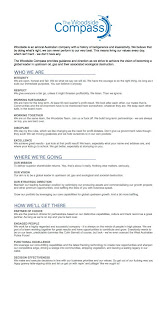
Peter Kerr, The West Australian February 20, 2013
http://au.news.yahoo.com/thewest/business/a/-/national/16187223/govt-at-odds-with-unions-on-flng/
The Gillard Government has stared down union demands to force petroleum giants such as Royal Dutch Shell to process huge gas reserves onshore to boost local jobs, paving the way for the use of floating LNG on Woodside's $40 billion Browse project.
Unions have attacked the Government in recent weeks over the issue, saying FLNG would cost jobs at the expense of overseas shipbuilding yards. They wanted the Government to use its manufacturing support policy, released this week, to force the issue. But the policy did not contain any references to FLNG or other union and industry demands to force petroleum companies to provide cheap gas.






Research by The Australia Institute suggests that slowing down the pace of coal exports would actually result in enormous benefits to the Australian economy. It would allow our other key export industries – including manufacturing, tourism, education and agriculture – to expand, employing more people and paying more tax.
Because these industries are all far more labour intensive than mining, less subsidised and mostly better taxpayers than mining, it would lead to more jobs and increasing state and federal revenue in the long run.


“Woodside's Section 18 approval of grave disturbing works flies in the face of previous recommendations and Court decisions not to allow mining in the area due to its cultural and environmental significance,” said Mr Chapple.
“I am appalled at the ACMC’s recommendations to permit the works to go ahead. In 1991, the ACMC recommended that no exploration activity should occur in the areas defined at the song cycle path and nothing has occurred to diminish this significance.”
“The ACMC is a toothless tiger that consistently fails to protect sites, and the Aboriginal Affairs Minister (Peter Collier) should be ashamed.” He said the Aboriginal Heritage Act is only “a thin veneer of protection” further weakened since a review last year.
The Law Bosses Mr Roe and Mr Hunter have separate legal fights in the Courts to protect their Country. Mr Hunter is arguing inadequate environmental approvals which if upheld would mean the whole Environmental Protection Authority approval process would have to start from scratch.
If Mr Roe’s court battle is won by him then there may well arise the cause for the Native Title claim to the site to be heard before any works commence.
A score of ANZ Banking Group machines sprawled across six capital cities were plastered with "out of order" signs on Sunday after campaigners launched their latest bid to draw attention to the bank's funding of the coal industry.


http://climatecommission.gov.au/wp-content/uploads/CC_Jan_2013_Heatwave4.pdf
The most recent Jan 2013 Climate Commission’s report lists what it says are four key messages for Australians arising from the heatwave. They are:1. The length, extent and severity of the current Australian heatwave is unprecedented.
2. Although Australia has always had heatwaves, hot days and bushfires, climate change is increasing the risk of more frequent and longer heatwaves and more extreme hot days, as well as exacerbating bushfire conditions.
3. Climate change has contributed to making the current extreme heat conditions and bushfires worse.
4. Good community understanding of climate change risks is critical to ensuring appropriate action is taken to reduce greenhouse gas emissions and to put measures in place to prepare for, and to respond to, extreme weather.



The Minister for Indigenous Affairs has granted Section 18 approval to Woodside to disrupt Aboriginal Heritage sites in the Cultural and spiritual significant sanddunes of James Price Point (Walmandy) According to the Minister the Songline is NOT A SITE.
Thats right, the Songline is not a Site it is made up made up of numerous sites: ceremonial, skeletal material/burial, artifacts and middens.
Woodside have actually applied for two Section 18. The first application that was approved was heard at the November Aboriginal Cultural Material Committee meeting. Another Section 18 application was advertised on the 19 of December and is scheduled to be heard at the ACMC meeting on the 13 of February 2013
The Minister for Indigenous Affairs has granted Section 18 approval to Woodside to disrupt Aboriginal Heritage sites in the Cultural and spiritual significant sanddunes of James Price Point (Walmandy) According to the Minister the Songline is NOT A SITE. That right, the Songline is not a Site it is made up made up of numerous sites: ceremonial, skeletal material/burial, artifacts and middens.
Woodside have actually applied for two Section 18. The first application that was approved was heard at the November Aboriginal Cultural Material Committee meeting. Another Section 18 application was advertised on the 19 of December and is scheduled to be heard at the ACMC meeting on the 13 of February 2013
Not every summer will be hotter than the one before. In fact this year is markedly hotter than the last couple of years when we had relatively milder and wetter conditions.
But what we are going to find on average is more of the hot extremes and faster increases in the future, over the next 10 and 30 years, that we have seen over the last 30 years - more hot extremes, more heatwaves and more extreme fire conditions.
Climate scientists have been talking about these increases for more than 20 years in Australia. We are now seeing exactly what was predicted more than 20 years ago.
Professor David Karoly
Miranda Devine’s columns defending violence against environmentalists set a new low for the editorial standards on the opinion pages of the Daily Telegraph and the Sydney Morning Herald. While media publishers such as Rupert Murdoch’s News Limited and Fairfax Media rightfully complain against the victimisation of journalists by vindicative governments or vigilantes, their willingness to defend or potentially incite harassment of environmentalists exposes how shallow their commitment is to ensuring debate over issues is kept within acceptable bounds.
It is, for example, hard to believe that a column defending or advocating violence against journalists would get a run in either the Daily Telegraph or the Sydney Morning Herald. Imagine the outcry if Devine had written that, after a bashing of a journalist, that “violence has its place”. Or the fury of the journalists union if she had written that “it is not arsonists who should be hanging from lamp-posts but journalists”.
But it seems that for the sake of creating controversy to sell newspapers, Devine’s toxic views defending and potentially inciting violence against environmentalists are tolerated.
http://www.tasmaniantimes.com/index.php/article/miranda-devine-and-thuggery
Australia emits 19 tonnes of carbon dioxide a year for each person who lives here. If the world wants to avoid more than 2C of warming the global average must be below three tonnes a year per person. Our addiction to economic growth is now a clear and serious threat to our long-term future.
Pitt & Sherry economist Phil Harrington, a Hobart-based specialist in climate mitigation and adaptation, discovered how serious when he looked into emissions from the proposed new "clean, green" liquefied natural gas hub at James Price Point, Western Australia.
The WA Government says the gigantic plant will release somewhere between 12 and 39 million tonnes of greenhouse gas a year. Calculations of negative impacts by proponents and their supporters usually prove conservative in practice. The upper limit is probably close to the mark.
Based on this supposition, Harrington did his own sums and came up with the number of rooftop solar systems needed to offset emissions from this single industrial undertaking.
The answer is wait for it 20 million. As Harrington says, it's a pity there are only around eight million households in Australia.
pb@climatetasmania.com.au
“More frequent extreme weather events, economic growth, urbanisation and population shifts towards high-risk areas have all combined to dramatically increase Australia's risk exposure,” Suncorp said in the report. “The chance that natural hazard will become natural disaster is greater than ever.”
http://www.perthnow.com.au/news/live-chat-with-premier-colin-barnett/story-e6frg12c-1226460108161

Although the benefits of the new procedure is yet to be formally assessed, anecdotal evidence suggests it is working. The requirement to have trial counsel involved in the case early has generated sufficient consideration of the case so as to result in settlements in some cases, or streamlined preparation for trial in others.
The WA Supreme Court has been asked to overturn the state government's second attempt at compulsory acquisition of the site and rule the $1.5bn compensation deal negotiated with the Kimberley Land Council invalid.
The action alleges the government facilitated an abuse of the federal court process in its dealings over James Price Point.
The Supreme Court action, on behalf of traditional law boss, Phillip Roe, claims the KLC had been placed under "improper pressure" by the WA government when it threatened the KLC and the applicant of the native title claim over the area if the group proceeded with a court action to split the claim.
The KLC was acting following a vote of Goolarabooloo and Jabirr Jabirr people that the native title claim be split.
The new action alleges the state government's actions had been an abuse of the acquisition processes as well as the Federal Court's claim process.
A summons has been lodged in the WA Supreme court against the State of Western Australia, WA Minister for Land, WA Land Corporation, Broome Port Authority, the Kimberley Land Council and others.
In a statement, Mr Barnett said: "The agreement reached by a vote of traditional owners was in accordance with the Commonwealth Native Title process under the supervision of the Federal Court. The state government is confident it has acted in accordance with this process and that the second Notice of Intention to Take was valid," Mr Barnett said.
Woodside?s Browse LNG project would need oil prices to average more than $US105 a barrel to make an economic return in its current format, strengthening the argument for it to be developed as a floating venture.
Broome to be Inpex supply hub |
TOLL Mermaid Logistics Broome, a 50%-owned subsidiary of Mermaid Marine, has won a five-year, $20 million contract to provide supply base services to Inpex in Broome, Western Australia. Under the contract TMLB will develop dedicated infrastructure and provide various services at its Broome supply base to support Inpex’s Ichthys LNG project development drilling works. |
"All the feedback we get is this project won't happen," he said.
"The major cause of that is the Premier interfering and intervening and creating a business environment which is not friendly and that's the outcome, that major investors will pull out."


Nationals Leader Brendon Grylls has described the Pilbara as a “basket case” because of government failures to plan for its growth, leaving its 50,000 residents to live with a raw deal.
"It wasn’t planned and then the community has had to put up with what they’ve got and struggle with it,” Mr Grylls said.
I’ve had more people cry in meetings with me in the Pilbara in the past 12 months than I’ve ever had in my full political career. And they’re crying because of the failure of government.
“They’re crying because having rents of $2000 a week when you’re a small business owner means you’re probably going to lose your business because you can’t afford employees.
Labor MLA for Pilbara Tom Stephens, who will retire at the election, said the speech was an admission of failure and instead of contesting the seat Mr Grylls should resign.“He’s been in the driving seat for four-plus years, with a policy commitment to fix it,” Mr Stephens said.
“He’s blaming everyone for their failures, but he’s a senior Government minister with direct responsibility for land release and regional development.
“He’s become part of the problem, not part of the solution.”
The West Australian Premier has upped the ante on the controversial Browse gas project, indicating that joint venture leader Woodside Petroleum might not receive state government approval for a floating option.
Colin Barnett said he doubted that the cost of constructing his favoured onshore gas processing plant at James Price Point, near Broome, could blow out to between $60 billion and $70 billion, causing Woodside to deem the project uneconomic.
At the stroke of a pen Minister for the Environment, Marmion has allowed a staggering 5.5 million tonnes of additional carbon pollution every year for the life of this project – roughly equal to the pollution from an extra 400,000 Australian households.
The EPA recommended a number of requirements for the gas hub to reduce carbon pollution in order to meet Premier Barnett’s commitment to world’s best practice; however Minister Marmion has overturned the advice of the EPA as well as the Appeals Convener in order to reduce costs for Woodside.
http://ccwa.org.au/media/wa-minister-allows-lng-pollution-blowout-equal-400000-homes

THE National Native Title Tribunal has admitted a senior executive failed to declare her ownership of a consulting firm that facilitated access to Aboriginal land by mining companies.
Nor did the NNTT’s former West Australian state manager, Lillian Maher, declare her relationship with two employees of Fortescue Metals Group, which benefited from tribunal decisions.
Given the rapid growth of reliance on non-resident workers in the resources sector carries significant impacts for individual workers and their families and host communities, as evidenced by the many submissions to the Australian Parliament House inquiry into FIFO/DIDO work practices, chaired by the Independent MP Tony Windsor. Some of the significant impacts include:
These impacts undermine the long-term sustainable community development of Australia. It is troubling therefore that dramatic socio-demographic processes have been unleashed by this boom without concerted attempts to accurately research, measure or account for the numbers of non-resident workers involved and their nation-changing impact on the Australian society and economy.
Within days of the latest court action being lodged, Woodside stopped work at James Price Point, removed all of its machinery and buildings and placed "revegetation site" signs around the area. The company said the site had been prepared for the coming cyclone season but there was still work to do this year.
The Supreme Court current action, on behalf of traditional law boss, Phillip Roe, claims the KLC had been placed under "improper pressure" by the WA government when it threatened the KLC and the applicant of the native title claim over the area if the group proceeded with a court action to split the claim.
The KLC was acting following a vote of Goolarabooloo and Jabirr Jabirr people that the native title claim be split.
Keeping the joint Goolarabooloo Jabirr Jabirr native title claim intact allowed the government to complete a second attempt at compulsory acquisition of the site without having to deal with opponents of the hub.
A first attempt at compulsory acquisition was overturned when the court ruled the state had not adequately identified the area to be acquired.



The Intertidal zone on the west side of the Damiper Peninsula is National Heritage Listed because of the dinosaur track sites embedded in the Broome sand-stone.
However, the National Heritage Council has done nothing to uphold their oblations under the National Heritage management principles (Schedule 5B, EPBC Regulations) for the protection of these important Australian heritage treasures.
Basically, the National Heritage Council has really only drawn a red line on a map and to this day no independently produced map indicating the true boundaries of the intertidal zone, and or the heritage protection areas.
· The objective in managing National Heritage places is to identify, protect, conserve, present and transmit, to all generations, their National Heritage values.
· The management of National Heritage places should:
- Use the best available knowledge, skills and standards for those places, and including ongoing technical and community input to decisions and actions that may have a significant impact on their National Heritage values;
- Respect all heritage values of the place and seek to integrate, where appropriate, any Commonwealth, State, Territory and local government responsibilities for those places;
- Ensure that their use and presentation is consistent with the conservation of their National Heritage values;
- Make timely and appropriate provision for community involvement, especially by people who have a particular interest in, or association with, the place and may be affected by the management of the place;
- Provide for regular monitoring, review and reporting on the conservation of National Heritage values
NONE OF THIS HAS, IS OR EVER WILL BE
UNDERTAKEN, WHY?

Woodside Petroleum (ASX: WPL) has confirmed that is bidding on the oil and gas rights to an enormous undersea gas field off Israel’s coast.
Woodside Petroleum (ASX: WPL) is taking a 40% stake in a deep water oil and gas exploration block offshore Myanmar from South Korea’s Daewoo international Corporation.
Woodside has joined with partners keen on an exploration licence offshore Cyprus.
You would think that Woodside has enough on its plate already, with its Pluto LNG plant stuck in first gear, after the company was unable to find enough gas to support an expansion.
Woodside also has plans to develop two additional – and controversial – LNG plants, namely Browse and Sunrise. Browse is facing opposition from all levels of main stream society. An LNG processing facilities will do untold damage to the environment and national Cultural heritage values at James Price Point and the Broome community, the Austrlian people are becoming more aware of the issue and the campaign.
Its partners in Browse, including BHP Billiton (ASX: BHP), Shell, MIMI and BP, are clearly all in favor for the gas piped to existing processing plant, or on to a floating one, rather than building a greenfield site at James Price Point.
Sunrise has its own issues. East Timor wants an LNG processing plant built in East Timor, with gas piped to it from the Sunrise gas field, while Woodside has said it prefers a floating processing plant.
A final investment decision by the Woodside-led joint venture on a controversial $40bn development of the Browse LNG project south of James Price Point is due next year.
Tender bids for infrastructure were received in the June quarter and Woodside said a "disciplined assurance process is progressing to determine project costs and economics".
A go-ahead decision has already been delayed from this year and analysts suspect the new date of mid-2013 could also be missed.

JAMES PRICE POINT — REGISTERED ABORIGINAL SITES — TERREX REPORT
I refer to Aboriginal sites at James Price Point.
(1) Is the minister aware of the 1991 WA Museum report prepared by Mr Nicholas Green, then a senior heritage officer with the Western Australian Register of Aboriginal Sites, for the Broome Mining Wardens Court in relation to exploration licences E04/645, EO4/646 and EO4/647, which generally is referred to as the Terrex report?
(2) Is the minister aware of the decision of the Aboriginal Cultural Material Committee communicated to the Mining Wardens Court in the above case by letter dated 18 July 1991?
(3) Is the “song cycle path” as recorded and mapped in the above report and as referred to in the ACMC decision, an area to which section 5 of the Aboriginal Heritage Act 1972 applies?
(4) Is approval under section 18 of the Aboriginal Heritage Act 1972 required in relation to any disturbance of the “song cycle path”?
Hon PETER COLLIER replied:
I thank the honourable member for some notice of the question.
(1) Yes.
(2) Yes; I am aware that the Aboriginal Cultural Material Committee provided advice to the Mining Wardens Court in 1991.
(3) Not at this time; however, the ACMC will be considering heritage information for the area at a meeting in the near feature, and will make a decision about whether a site exists.
(4) No.

Department Indigenous Affairs (DIA) prepared a document for Department State Development (DSD) in January 2009 which stated that:- “The following information has been prepared in response to a request from the Department of State Development for Aboriginal heritage sites registered with the Department of indigenous Affairs along a 10km investigation corridor in the vicinity of James Price Point'. An answer received today now states that DIA has no record of a formal request being received by DIA.
Yet the document exists and is available at http://www.robinchapple.com/sites/default/files/2009-01-12%20DIA%20File%20Note%20to%20DSD.pdf of which the attached email states that this is the brief that was sent some time ago.
This document requested by DSD of which the department has no record of the request was requested in 2009 and would have provided to DSD the advice that the area of James Price Point had significant heritage areas before DSD or the EPA made any assessment of the area as part of the Strategic Assessment Report that was released as Report 1444 in July 2012.
Who we are:
We are a coalition of concerned community members dedicated to stopping the proposed industrial development at James Price Point (Walmadany), north of Broome. We love Broome, its heritage, its culture, its environment and its unique and historically successful multicultural community. We are campaigning against industrialisation because we believe it threatens to destroy all the things we love about our town, our region and our community. There are alternatives to building an LNG plant at James Price Point. We support development of our region that is socially, culturally and environmentally sustainable, and that provides real long-term economic and environmental solutions for current and future generations.
Last month in a disingenuous attempt to circumvent and appease increasing community revolt, both locally and internationally, WA Today’s Rania Spooner wrote that the Premier had announced a Bill
‘…to limit the use of the precinct to gas processing only, to rehabilitate and remediate the land after the precinct is closed and to return the land to traditional owners at the end of the precinct life.’


MEDIA RELEASE
Poll: 85% want Federal Government to make the final decisions on environmentally risky development proposals
Polling released today shows 85 per cent of Australians agree the Federal Government should be able to block or make changes to major projects that could damage the environment.
The Federal Government could give up much of its power to do so under proposed changes to the national Environment Protection and Biodiversity Conservation (EPBC) Act, currently being pushed by state governments.
“This is a clear message that Australians want our Federal Government to retain the right to stop potentially damaging developments,” said WWF Conservation Director, Gilly Llewellyn, speaking on behalf of an alliance of more than 30 Australian environment groups.
“It’s obvious that Australians want our unique wildlife and places to have robust protection, that’s why these changes to our national environmental law will not be widely supported,” Dr. Llewellyn said.

Post-Pluto, Woodside's future remains greatly influenced by the high-cost construction environment. By the second quarter of next year, (rumors have it end of this year) Woodside and its partners in the Browse LNG project have to be in a position to make a final investment decision on the contentious development, in line with permit retention conditions imposed by the Federal and WA governments.
Right now Woodside is digesting tenders for the on and offshore components of a project analysts expect to cost at least $40 billion.
The Don to bat on for Nexus
Wednesday, 26 September 2012
EX-WOODSIDE chief Don Voelte is back in the Australian petroleum industry, taking on the role of non-executive chairman at Nexus Energy as part of a major board shake-up.
Current non-executive chairman Michael Fowler and directors Michael Arnett, Steve Lowden and Ian Boserio will all depart Nexus next month.
MP makes conflict of interest claim
Kim Kirkman
Broome Advertiser
A DEPARTMENT of Indigenous Affairs deputy director who was involved in giving advice to Woodside in relation to possible Aboriginal heritage sites at James Price Point was a former director of the Department of State Development's Browse LNG project and received gifts from the oil and gas producer, State Parliament has been told.
In a parliamentary motion last week, Greens MLC Robin Chapple claimed Duncan Ord was one of three Department of Indigenous Affairs employees who had a significant role to play in the development of the (Browse LNG) proposal while working for the DSD.
The motion condemned the Government's "failure to ensure that environmental, indigenous and cultural interests were protected".

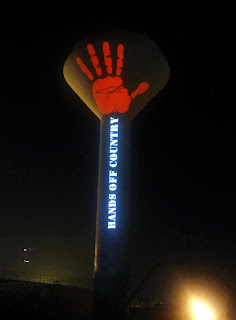
http://news.ninemsn.com.au/article.aspx?id=8530514
The approval process for a $34 billion gas hub earmarked for Western Australia carries the "stench of corruption", the Senate has been told.
Woodside Petroleum is seeking environmental approval to build a liquefied natural gas (LNG) processing hub at James Price Point near Broome, amid strong opposition from local indigenous and environmental groups.
During Senate question time on Monday, Australian Greens senator Christine Milne asked the government if it had confidence in the WA assessment process.
She cited weekend media reports, which said Woodside had pressured the state government to withdraw advice about breaches of Aboriginal heritage laws.
Labor frontbencher Stephen Conroy, representing Environment Minister Tony Burke, said Mr Burke would not be making any decision at the federal level until all the state issues were appropriately investigated.
He said he would seek further information from the minister.
When, how and who will investigate this stench of corruption?

Mr Barnett, talking to ABC radio in Perth on Wednesday, agreed it was "coincidental" that Environment Minister Bill Marmion had changed the law last year to allow just one member of the EPA to make decisions - which later happened in the Woodside case.
However, the premier said "there was nothing wrong with the decision".

WA Premier Barnett:
“The reason we’re pushing ahead with James Price Point is not from some political standpoint that we’re right and everyone else is wrong- there is logic in our madness. It’s an informed gut feeling that the Browse basin will be home to not one but possibly two or three projects”, Wednesday, 29 August 2012, Energy News Premium.
“It’s not a private decision – it’s a government decision”, Broome Advertiser, Aug 30, 2012.
No comments:
Post a Comment